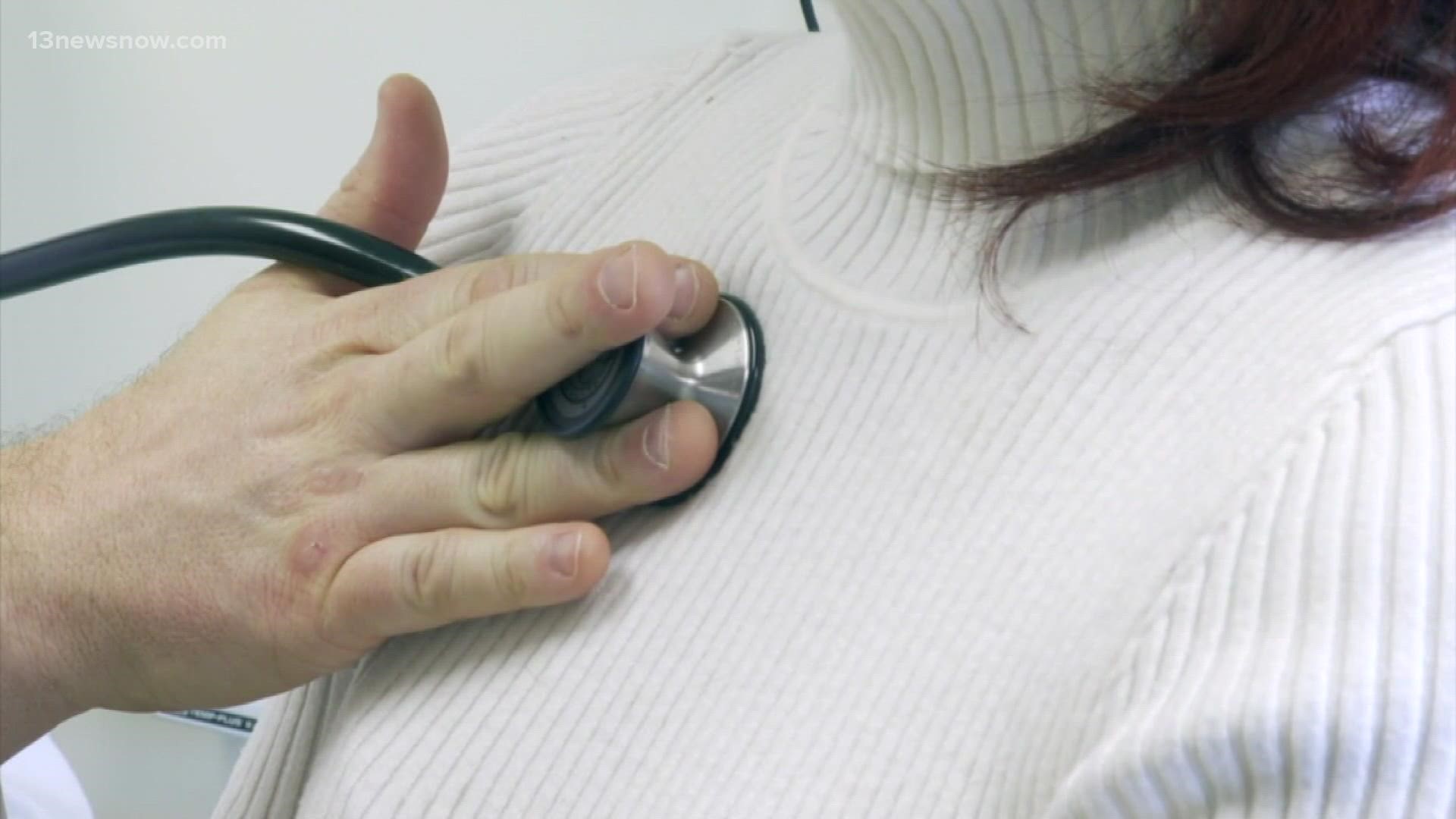NORFOLK, Va. — For millions of Americans like Johnathan Stanley, a negative COVID test does not necessarily mean their battle with the virus is over. That’s because they’re dealing with "long COVID".
Recently, 13News Now told you about Stanley's battle.
"I went to the doctor and they said, 'This is part of those long-term effects we talked about as a long-hauler,'" he said.
Since Stanley's second COVID-19 infection nine months ago that put him in the hospital, he’s still trying to heal. He lost 135 pounds, his sense taste and smell, and his voice.
"I use my voice more than anything," he said.
Even worse, his doctors also believe he developed throat cancer because of the coughing and the strain the virus put on his body.
"This is a theory that they have that with all the coughing and all of the stuff," he explained. "It aggravated certain cells in me that came alive and caused this cancer."
Stanley is not alone on his long journey to recovery.
"Long COVID is real," said Dr. Priya Duggal, a professor of epidemiology at Johns Hopkins Bloomberg School of Public Health.
She said globally, an estimated one-third of people who had COVID are now considered long haulers. Duggal said people who tested positive for COVID, three to five percent have long-term symptoms where they feel like they can function in everyday life.
"Even if we think this could be one percent, it would affect 800,000 people given that 80 million have had a COVID-19 infection in the U.S."
The WHO defines "long COVID" as "new or persistent symptoms three months after your initial infection that lasts for two months or more."
Medical experts say that based on what they know, it doesn’t matter your age, race, sex, or how severe your infection was: everyone is at risk for long COVID.
"No one has a free pass," said Duggal.
Long COVID symptoms can range from mobility issues to congestive heart failure to mental disorders. Duggal said there is still so much we don’t know about what constitutes a symptom.
So, what are doctors doing?
"At the moment there are no specific long COVID treatments," she said. "Partially because we don’t know the mechanism of long COVID."
That means doctors still don't know how the lasting effects of COVID's attack the body.
She said if it’s extra virus, anti-virals could work. If it’s an immune response reaction, doctors need to find a way to control the initial immune response.
"We do know that individuals and specific organs may have traces of the virus, meaning they have particles of the virus that are left, but not necessarily a reservoir, but there is a possibility in future studies that we may see that emerge."
If you are dealing with long COVID, there is good news. Johns Hopkins has started a long COVID study. They're going to survey 25,000 people in total. So far, they have 15,000.
The goal is to quantify how many people are dealing with this and what the risk factors are.
She said they’re hoping to get the initial results from their study on the effects on mobility by this summer.
For now, long COVID multidisciplinary clinics are opening across the country.
"This will provide you with specialists that can address a multitude of symptoms," Duggal said.
If you’re struggling with symptoms there are clinics in Richmond, Lynchburg, and right here in Norfolk at Sentara Heart Hospital. But as more people are infected with the virus and battle the ongoing symptoms, there are concerns about what that will mean for the healthcare system.
"Overall, there is a general concern of who will be qualified and able to treat the burgeoning number of patients that we’re gonna have with long COVID."
Duggal said the best way to avoid any potential long-term symptoms is to steer clear of infection or reinfection.
"It’s not yet clear if the vaccines or boosters protect you from long COVID, or if different SARS-Cov-2 variants can result in different long term outcomes, but we do see that fewer people who were vaccinated report long COVID symptoms," she said.
In the meantime, Stanley is working with his doctors to fight through his long-hauler symptoms.
"This is just a season. It’s gonna pass. I’m gonna get better," he asserted.
He said first up, his doctors will put in a feeding tube. Then, he'll begin radiation five days a week for seven weeks, as well as chemo once a week for four hours.

